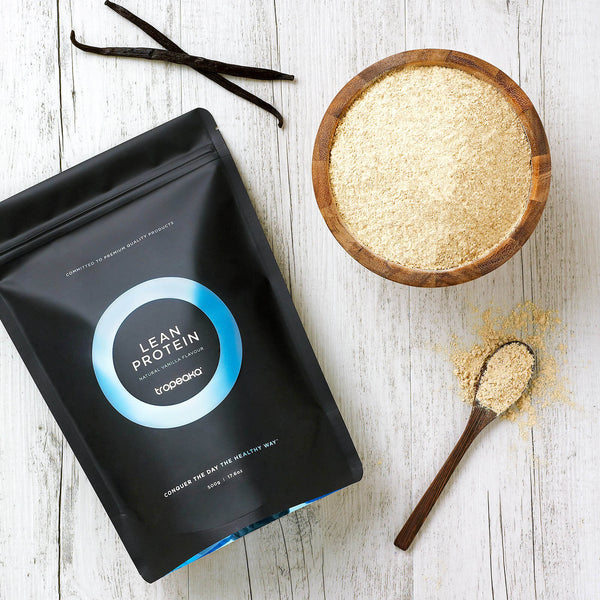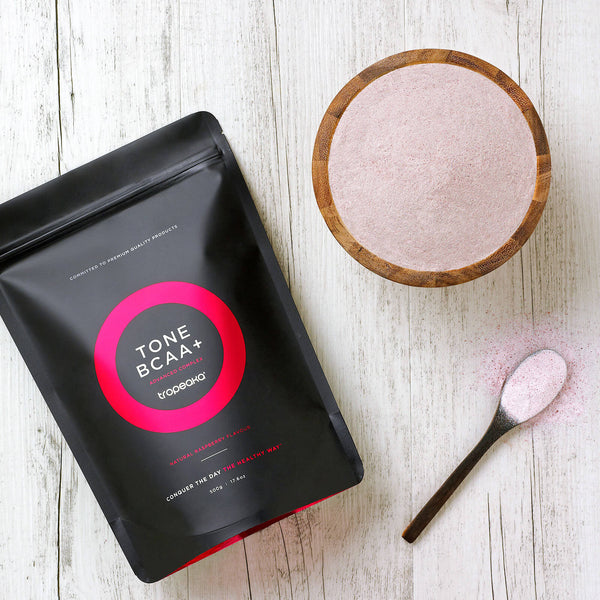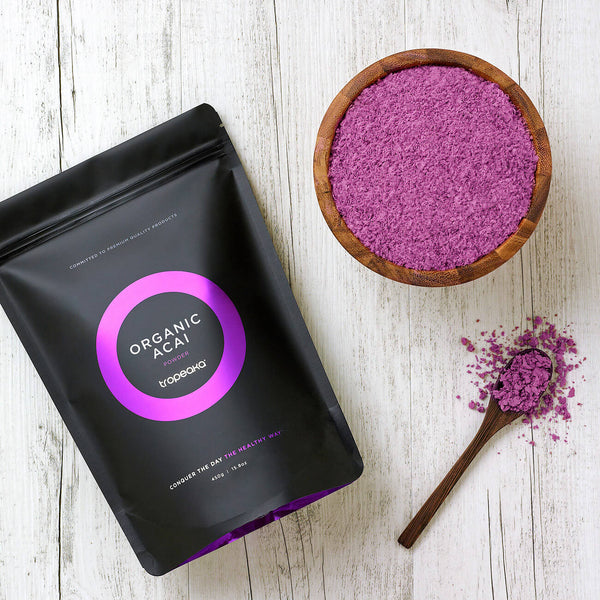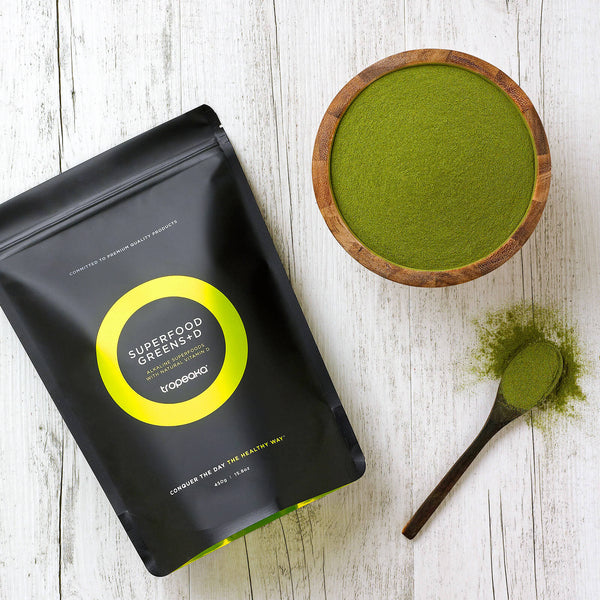It can be easy to lose motivation at the gym if your recovery time keeps holding you back, so try out our top 11 tips to recover faster from the gym here!
Y
ou know you’re hooked when a rest day takes more discipline than working out…
Even when you're doing your best to develop a really solid workout routine, it can be easy to lose motivation if your recovery time keeps holding you back. If you're limping for a week after a social 5k jog or sitting on the toilet isn't getting any easier between leg days, then it's a good time to start thinking about quick muscle recovery as an essential part of your healthy lifestyle. If you want to know how to recover faster from the gym, then you’ve come to the right place!
Mastering the art of recovery is key to maintaining a long-term fitness lifestyle, so this post is all about the essential muscle recovery tips for staying on track to your goals. Did you know that your body adapts to the stress of exercise during periods of rest? In other words, it’s during your recovery time that your body begins to change.
Not only do you need to know how to recover from an intense workout, but you need quick muscle recovery so you can get back into training as soon as possible.
Here are 11 ways to make sure your post-workout recovery is as quick and painless as possible!
1
Get more sleep
If you want to know how to recover after exercise, you’ll be pleased to know it starts in the bedroom. Not only does sleep deprivation have a negative impact on exercise performance, but it also makes it more difficult for your muscles to repair after the gym.
The amount of sleep a person needs can vary depending on many factors, but generally speaking, anything less than a consistent 8 hours each night is likely to hinder your recovery speed, along with many other aspects of your life. In addition to getting good quality sleep overnight, consider taking short power-naps after particularly challenging workouts to kickstart the recovery process.
Focus on warm-up movements which use the same muscle groups
2
Always warm up
This is a surprisingly important key to quick muscle recovery! You don’t need to spend a lot of time warming up, but you do need to make sure you ease into your workout with some dynamic stretches and bodyweight movements to loosen up your joints and warm up your muscles.
Not only does this help to prevent injuries, but it also enables you to perform with better technique during your workouts, which means much less discomfort in the following days. Focus on warm-up movements which use the same muscle groups that you'll be targeting in your workout.
3
Always stretch
Just as warming up before exercise helps with quick muscle recovery, so does a good post-workout stretching session. It's helpful to think of stretching as part of your workout, rather than a post-workout chore which can be left out when you're in a hurry or simply don't feel like it.
Stretching is a great way to improve your flexibility and range of motion, and it prepares you to perform a little better next time you workout. It’s just as important as the rest of the workout, and it should only be left out if you’re willing to risk spending the next few days with stiff limbs, hobbling around in pain.
Bonus muscle recovery tip: Learn to love stretching and relish in that special time for deep breathing, re-centering, and reflecting on the great workout you just did. This is a great way to recover after exercise by restoring balance to your parasympathetic nervous system.

4
Complimentary exercise
If you’re wondering how to recover from an intense workout, it doesn't always mean you should be flat on your back all day. Quick muscle recovery can also be achieved through gently moving your body in ways that complement or counteract your main fitness activity.
Complimentary exercise not only helps to improve your performance in your main activity, but it’s a great way to add variety to your lifestyle and is an excellent form of active recovery.
Yoga is a great complementary exercise to many other fitness activities because it increases overall strength and flexibility, while swimming helps to loosen up tight muscles after weight training, and cycling offers a low impact cool down and stretch after running.
Soaking in an Epsom salt bath after your workouts can prevent inflammation
5
Epsom salt bath
An intense workout can leave your body depleted of magnesium, leaving you more likely to suffer from cramps, muscle soreness and bad moods while your muscle repair after gym.
So here’s one of the easiest muscle recovery tips: Epsom salt is magnesium sulphate, and when combined with warm water, it can provide almost immediate relief as the minerals are absorbed through the skin.
Soaking in an Epsom salt bath after your workouts can prevent inflammation and significantly shorten your recovery time. Recovery should be a time of self-care and nourishment for your body and soul, so run a bath, light some candles and replace those minerals.
6
Nutrition
A healthy diet full of nourishing and wholesome foods is going to put you miles ahead in your recovery time. While calories are an important consideration if your goal is to lose or gain weight, it's also essential to make sure you're eating a good balance of macronutrients (carbohydrates, fats and proteins), and micronutrients (vitamins and minerals) to ensure you recover as fast as possible and get the most out of your workouts.
While carbs and fats are also essential to a healthy diet, protein is the most important macronutrient for promoting quick muscle recovery. This is because it contains amino acids, which are crucial for rebuilding our muscles post-workout.
Having a high protein breakfast will ensure your body is fueled well for a full day of muscle recovery. Having protein before exercise also triggers muscle synthesis during our workouts, and consuming a light, protein-rich snack before bed helps your body repair, rebuild and recover while you sleep.
So how do you recover quickly from the gym? You eat well and supplement with high quality proteins and superfoods!

7
Stay hydrated
Discovering how to recover after exercise could be as easy as drinking more water each day. It's especially important to drink plenty of water around exercise. Aim to drink a large bottle of water before your workout, a large bottle during your workout, and another large bottle after your workout.
Working out when you’re dehydrated can result in excessive damage to your muscles, and failing to stay hydrated after exercise can inhibit muscle repair. The result is a long and unpleasant recovery time, holding you back from reaching your fitness goals.
How to recover from an intense workout
If you’re doing really long, intense workouts and feel that plain water might not be enough, opt for a natural source of electrolytes like coconut water and avoid all those artificial 'sports drinks' out there. Natural, healthy hydration is essential for quick muscle recovery!
8
Massage
Enjoying a professional sports massage after every workout is the dream, but a massage at home from a family member or friend can still help! A massage can break up scar tissue and reduce the stiffness that we often experience while our muscles are repairing after a tough workout. Here are some of the benefits of a post-workout massage.
9
Foam rolling
Don’t have access to a masseuse after every workout? Join the club! Fortunately, there is another solution for easing the soreness in your muscles and connective tissue. Foam rolling isn’t exactly famous for being enjoyable or even remotely comfortable, but the benefits make it all worthwhile.
Foam rolling is a kind of self-myofascial release, which can help remove knots, eliminate toxic buildup and prevent muscle imbalances from developing. A foam roller is an affordable, at-home option for quick muscle recovery!
10
Compression garments
If you’re after quick muscle recovery, it may be a matter of what you’re wearing when you workout. Many athletes wear compression garments during their training because they need to recover as quickly as possible after an intense workout.
Current research suggests that wearing compression garments may decrease the time it takes for muscles to recover between workouts by reducing the buildup of lactic acid. Is muscle repair after the gym your top priority? You may need to upgrade your workout wardrobe!
11
Hot and cold therapy
Saunas provide a whole-body heat therapy, which is a powerful way to relax tight muscles and reduce inflammation following exercise. By increasing blood flow, sitting in a sauna sends fresh blood cells throughout the body, delivering oxygen to the muscles. Oxygen availability is a vital component in muscle function and is especially important in aiding quick muscle recovery.
To get more out of your sauna experience, try adding a cold plunge. All you have to do is jump in the pool after spending 10-15 minutes in the sauna and repeat this process a few times. In addition to accelerating the recovery process, rejuvenating the skin and supporting immune health, there are many other proven benefits of a cold plunge during your sauna session.
Is it time to prioritise quick muscle recovery?
If you're not getting the results you want, or your performance is not where you want it to be; it's time to schedule in a few extra rest days and implement some of these quick muscle recovery tips.
As your fitness level improves, the process of muscle repair after gym will naturally become faster. However, it will take much longer to reach a higher level of fitness if care isn’t taken during the recovery process. The key is to avoid overtraining, and to never feel guilty on your rest days.
So now that you know how to recover quickly from the gym, always remember: Muscles are challenged in the gym, fed in the kitchen and built in bed.
And finally, don’t forget to share these muscle recovery tips with your gym buddies, and tag us on our instagram when you take on any of these new strategies!





